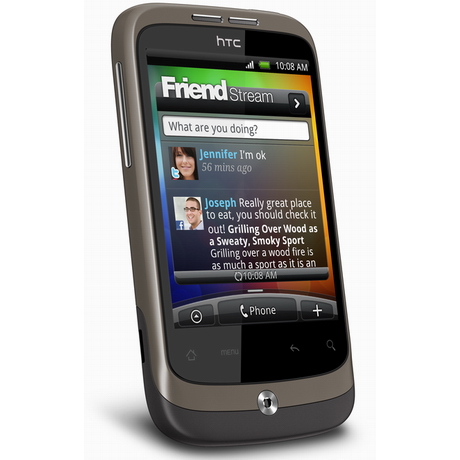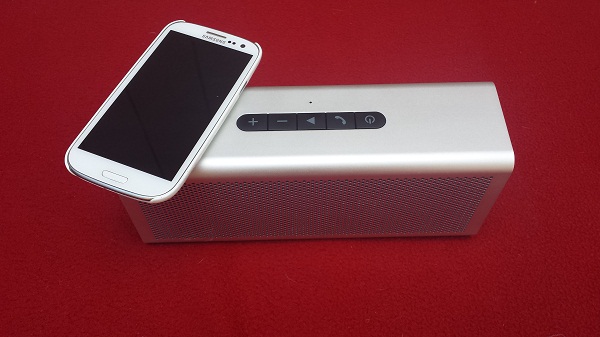 When I posted up Apple, Google and an 800 pound Gorilla, I didn’t really expect it to get the response that I did from it. Sure I expected some opinions from the readers here, a few ideologically based arguments and a few rants. I did not expect that this post would end up with reactionary postings on other blogs. Not bad for my first blog posting anywhere.
When I posted up Apple, Google and an 800 pound Gorilla, I didn’t really expect it to get the response that I did from it. Sure I expected some opinions from the readers here, a few ideologically based arguments and a few rants. I did not expect that this post would end up with reactionary postings on other blogs. Not bad for my first blog posting anywhere.
Because of this I have decided to break my answers up into several articles. This will be the first of several articles addressing what I think Google should do to keep its market share up moving forward.
Further more this post will be the first in I hope a long line of peer-reviewed articles between our site and other Android blogs. Check the bottom of the article over the next few days,  for links to how my peers perceive the ideas laid out.
Google needs to advertise the Android OS
As funny as that may sound when talking about Google, they really do not Advertise the Android OS at all. It’s about time they start.
When you look at Android’s growth figures, it would be pretty easy to argue that Google does not need to advertise on their own. This argument would likely be forgetting that the current trend for Android advertising has changed.  Verizon Droid adverts along with the adverts of other carriers in the US strictly point to a particular product, like the Droid X or Droid Charge. There is little to no mention of the OS past the possibility of the term “Android” being thrown in.  The early advertising style in the “Droid Does” campaign has vanished and along with it any description of what the Android OS affords its users. Even though I’ll admit to liking the Sprint Nexus S “More Cats” commercial, it really did not talk too much about Android or its features past the ability to add more cats to the internet. The problem with this type of advertising is the product being sold will more than likely not be around in a years time. In essence its a temporary push, to sell a temporary product. The focus is no longer on Android as a product, the focus is on the phone itself. I can’t say I blame them,  the sheer volume of Android phones available demands this type of advertising to help the product stand out.
Now compare this with Apple’s iPhone advertising. The viewer knows exactly what phone it is, because the product is simply positioned as an iPhone.  More important than the device itself, the viewer is told something about the capabilities of the device. Apples advertising is not effective because they show off a sleek and shiny device. Apples advertising is effective because it shows the simplicity of its device and how the benefits of that simplicity fit into and change your life.
Google could easily advertise Android in much the same way.  More over I think they are going to need to now that the carriers are more concerned with pushing their new hardware, then pushing Android itself.  The current Chrome commercials are a good example of how Google should present Android in advertising. The commercial below is effective because it shows that even something as simple as a web browser, can have a meaningful impact on our lives. More so, it shows how Google’s services used together make attaining that impact a simple, cohesive experience.
A recent study shows that at the end of the second quarter of 2011, smartphones made up 40% of the US cellphone market. Â The two majorities that make up the remaining 60% are shown to be both sitting on the fence or completely undecided about which smartphone platform to choose. I would be willing to wager that these two groups have little to no knowledge about what either platform can do for them. These two demographics are not as likely to research the pros and cons of a platform on their own and this is where advertising come into play. The company that can manage to connect with the people in these groups is going to capture more sales. Right now, Apple is the only company in a position to do so.
Android’s present advertising style is not going to capture the audience discussed above. They are not going to be swayed by some neo-futuristic fight scene, or fancy technical jargon. In my experience with the average electronics consumer, obsessively advertising tech specifications and the use of acronyms, tends to act as a turn off for a product. Who can blame them, no one likes admitting their own ignorance on a subject.
Apple has a strong connected ecosystem of hardware and software that it makes sure is conveyed in its advertising. Further more it is conveyed in a simple, non-technical way, that anyone can absorb. It’s important for Apple that you know how buying into this ecosystem will make your life simpler and richer at the same time.
Microsoft, who’s offering at present is admittedly weaker, will start to make major headway by the end of 2012 with the release of Windows 8. We have to keep in mind that Microsoft adopting ARM architecture is going to drastically change the industry for both mobile and desktop environments. Microsoft will look to unify the aesthetics of its UI along with unifying the connected nature of smart-phones, tablets, laptops, PCs and servers into one seamless experience in both the business and consumer markets. You can bet on the fact that Microsoft will have a marketing blitz to assure that all of their possible market targets will be made aware of this fact. RIM will likely lose a tremendous amount of market share in the business sector to this, but the consumer market is a little less predictable. Even though it maybe hard to predict from an end-game view-point, it is not hard to predict that their enormous global market share, will have a major impact on platform choice in the mobile arena.
Google may be able to take advantage of the idea that both of the competing systems require a hardware or software ecosystem in place to get all the benefits they afford the user. The Achilles’ Heel in both Apple and Microsoft’s business model is the fact that both are still chained to the need for selling software and or hardware as an entry point for their respective ecosystems. This is exactly where Google should be aiming to create a successful advertising campaign for Android. Google should make it well-known that Android does not care in the slightest what OS you are running. Google should examine the idea that the connected nature of its system works in the same seamless fashion when used with Windows, OSX, or even Linux. Google should advertise the idea that it does not matter if the computer you are working on belongs to you or not, as Android and the Google cloud of services are always available to you no matter where you are or what system you are working on.
There are a few other points of interest I would like to make for advertising, but they are tied into other aspects in need of change. I will bring these points up in the remaining follow-up articles.
No matter how you look at it, the last quarter of 2011 and all of 2012 is going to bring one hell of a fight to a store near you.
Do you think Google is ready?









